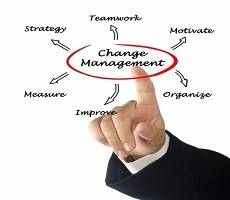June 20, 2017
The workplace experience will define how real estate enables business transformation 0
 JLL has today launched ‘Workplace powered by Human Experience’, a new global report series and accompanying tool, the ‘Human Experience model’, looking at how workplace experience can help businesses thrive in the new world of work. Findings of the report, which is part of JLL’s recently launched Future of Work research programme, are based on consultations with decision makers at 40 corporations around the world and the results of a separate, anonymous survey of more than 7,300 employees working for companies with more than 100 members of staff. The survey covered 12 countries and the respondents were aged between 18 and 65 years. Countries where employees were surveyed: Australia, China, France, Germany, India, Italy, Japan, the Netherlands, South Africa, Spain, the UK and the US.
JLL has today launched ‘Workplace powered by Human Experience’, a new global report series and accompanying tool, the ‘Human Experience model’, looking at how workplace experience can help businesses thrive in the new world of work. Findings of the report, which is part of JLL’s recently launched Future of Work research programme, are based on consultations with decision makers at 40 corporations around the world and the results of a separate, anonymous survey of more than 7,300 employees working for companies with more than 100 members of staff. The survey covered 12 countries and the respondents were aged between 18 and 65 years. Countries where employees were surveyed: Australia, China, France, Germany, India, Italy, Japan, the Netherlands, South Africa, Spain, the UK and the US.









 Implementing new technologies over the next 12 months is of primary importance for senior managers, with nearly two-fifths of finance directors saying digital transformation is one of their greatest priorities. Against a backdrop of economic uncertainty, chief financial officers (CFOs) are focusing on increasing profitability (41 percent) and driving overall company growth (39 percent) in the year ahead, according to research from,
Implementing new technologies over the next 12 months is of primary importance for senior managers, with nearly two-fifths of finance directors saying digital transformation is one of their greatest priorities. Against a backdrop of economic uncertainty, chief financial officers (CFOs) are focusing on increasing profitability (41 percent) and driving overall company growth (39 percent) in the year ahead, according to research from, 























